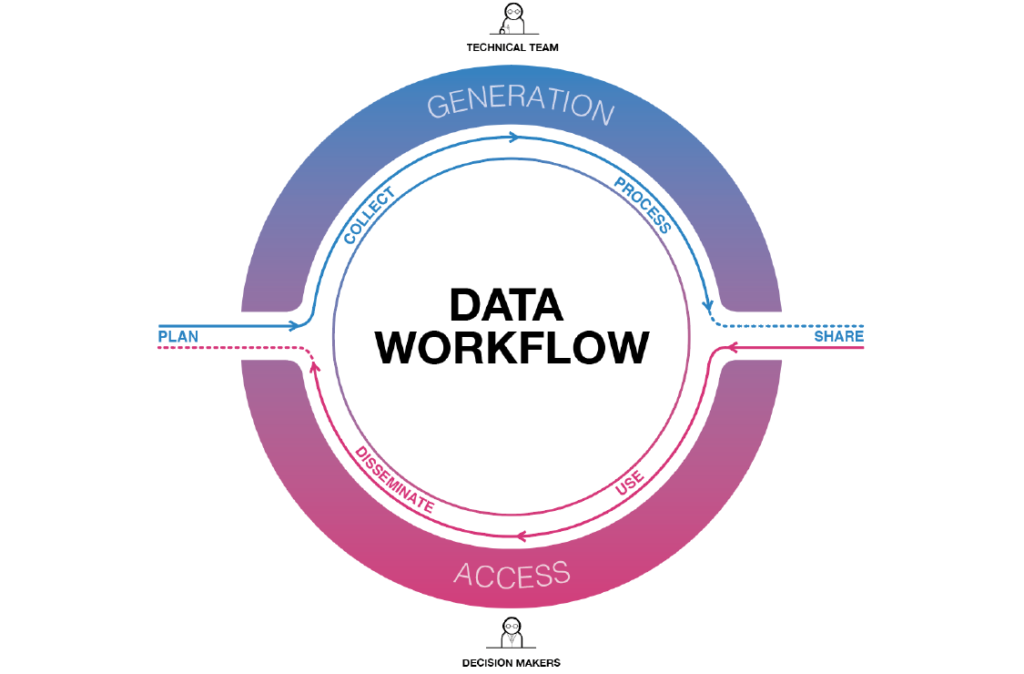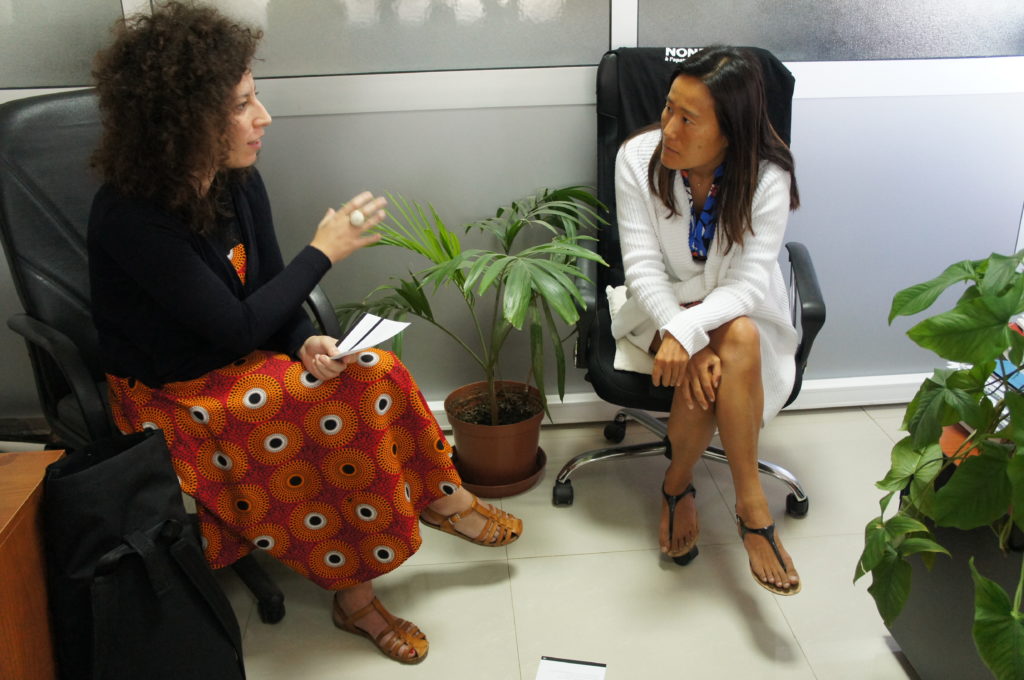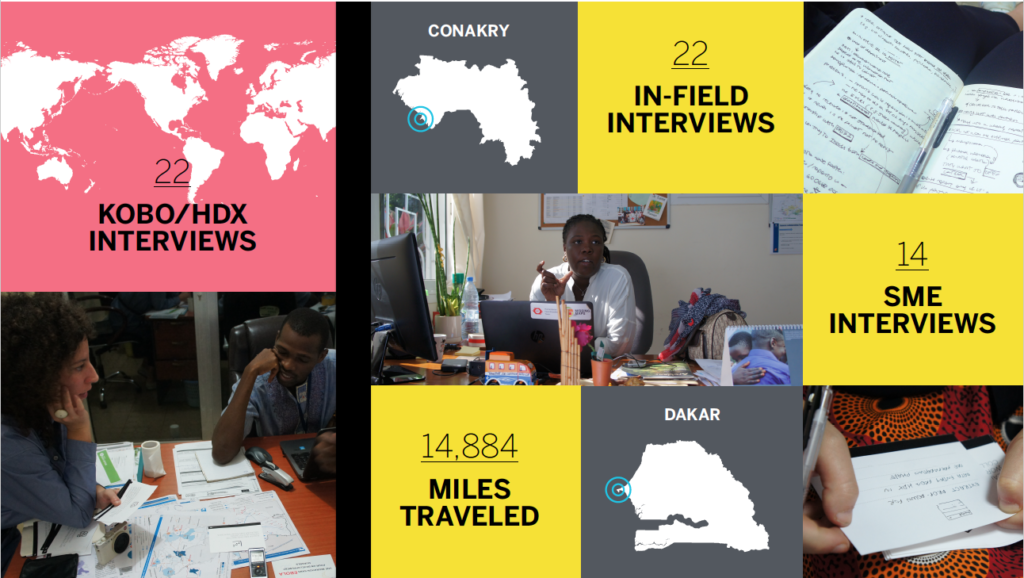Share
The Humanitarian Data Exchange (HDX) aims to accelerate data flows in the humanitarian sector and reduce the time between data collection and decision making. What if accessing data generated with mobile tools like KoBoToolbox was easier and faster? How would users of KoBo and HDX benefit from the integration of these two systems?
To answer these questions, I interviewed OCHA staff and HDX/KoBo users from different organisations, including UNHCR, the Federation, CartOng, IOM and many others. Specifically, I wanted to understand if integrating mobile data collection tools and open repositories could help data experts and decision makers work more effectively. If so, how would that integration fit into their existing processes?
I looked at the entire humanitarian data workflow (see image below), mapped challenges and needs across various steps and roles, and highlighted the impact and use of different tools involved in data generation and access.

I discovered that the need to process data before sharing represents a barrier to integrating data from different systems. It is not feasible to create a one-click share process from KoBo to HDX. Raw data from KoBo requires several iterations before being ready for internal and external sharing, including steps for cleaning and combining datasets, anonymisation, and final approval.
Using standards in the planning phase of data collection could reduce the amount of work required to process and visualize data later in the workflow. For example, by adding Humanitarian Exchange Language (HXL) hashtags to the KoBo question form up front, data managers could benefit from a supported data cleaning process and smart visualization features. The HXL tags would also make these datasets interoperable with other HXL-tagged datasets which would speed up work to visualize data from multiple sources and systems.
The KoBo research also revealed a growing desire for safe storage spaces where humanitarian organisations could host and collaborate on their data before it is shared publicly. They would like to control access to the data for different users and to distribute training materials and documentation to standardise data processes and support capacity building. There is an opportunity for HDX to create a bridge for groups that want to host and work on datasets on their own private servers, and then subsequently share some of the data openly through HDX.

Interview with an Information Management Officer from UNHCR.
Credit: Alexandra Coym.
A second round of research sought to move beyond KoBoToolbox to explore and validate opportunities for integrating with other data systems. A team from frog and the HDX Data Lab in Dakar conducted field research in Dakar and Conakry in early February.

We are now working to detail a set of features and tools that will help speed up data workflows and make data more discoverable across the humanitarian sector. This includes new tools for adding HXL tags to templates and datasets and the ability to share only metadata on HDX with controlled access to the actual data. A complete report of research outcomes and new designs will be shared soon.
Thank you to everyone who participated in the interviews in Dakar, Conakry and globally. Special thanks to the team at OCHA and the Harvard Humanitarian Initiative for the foundational knowledge they shared about KoBoToolbox.
—
Roberta Tassi is a designer with an eclectic background spanning Design Research, Interaction and Service Design. She is an expert in combining design ethnography, participatory design and information visualisation to work on complex systemic challenges.
She is a fellow at frog, adjunct professor of Interaction Design at the University Politecnico di Milano, and a UX consultant for various organisations, including OCHA and UNEP.